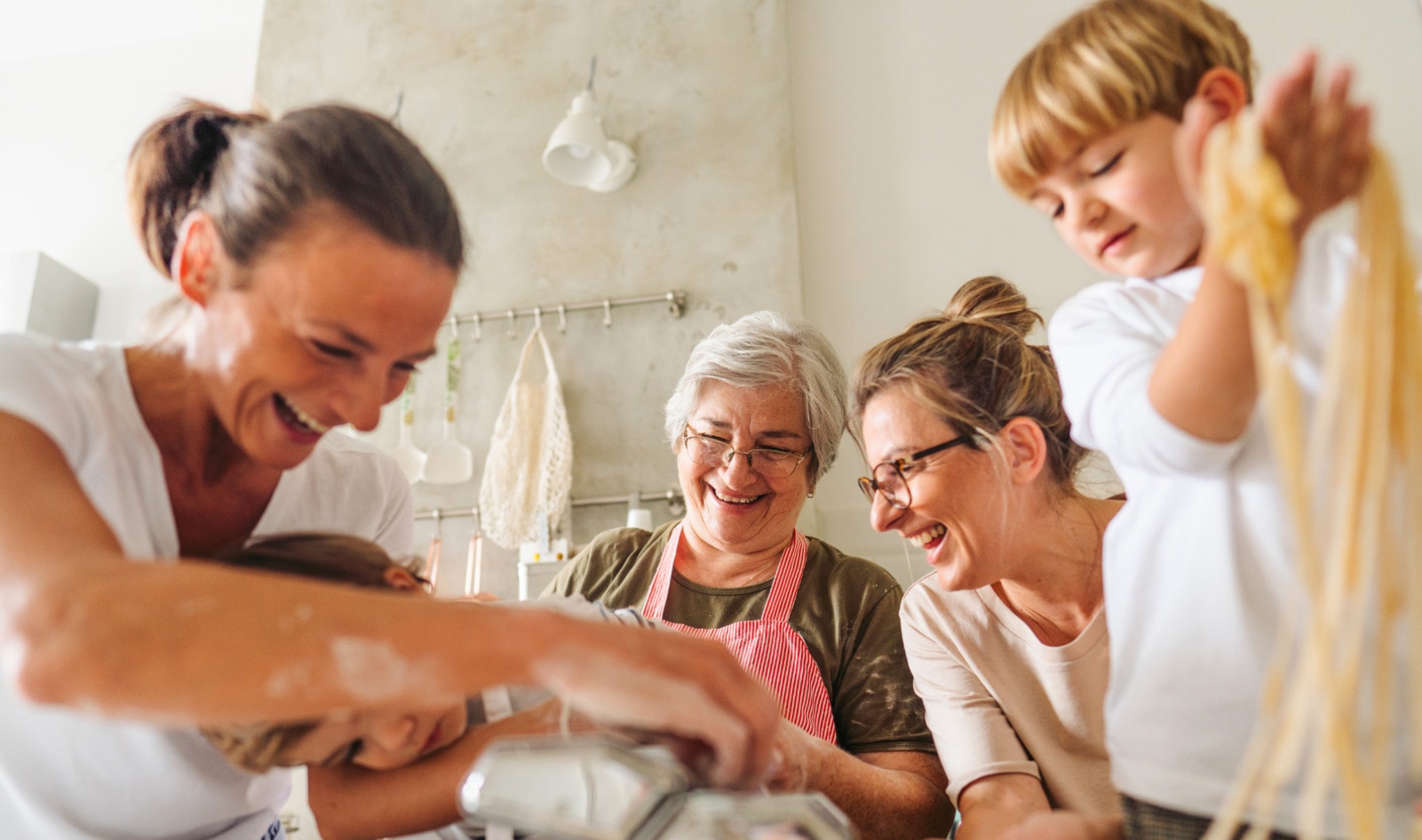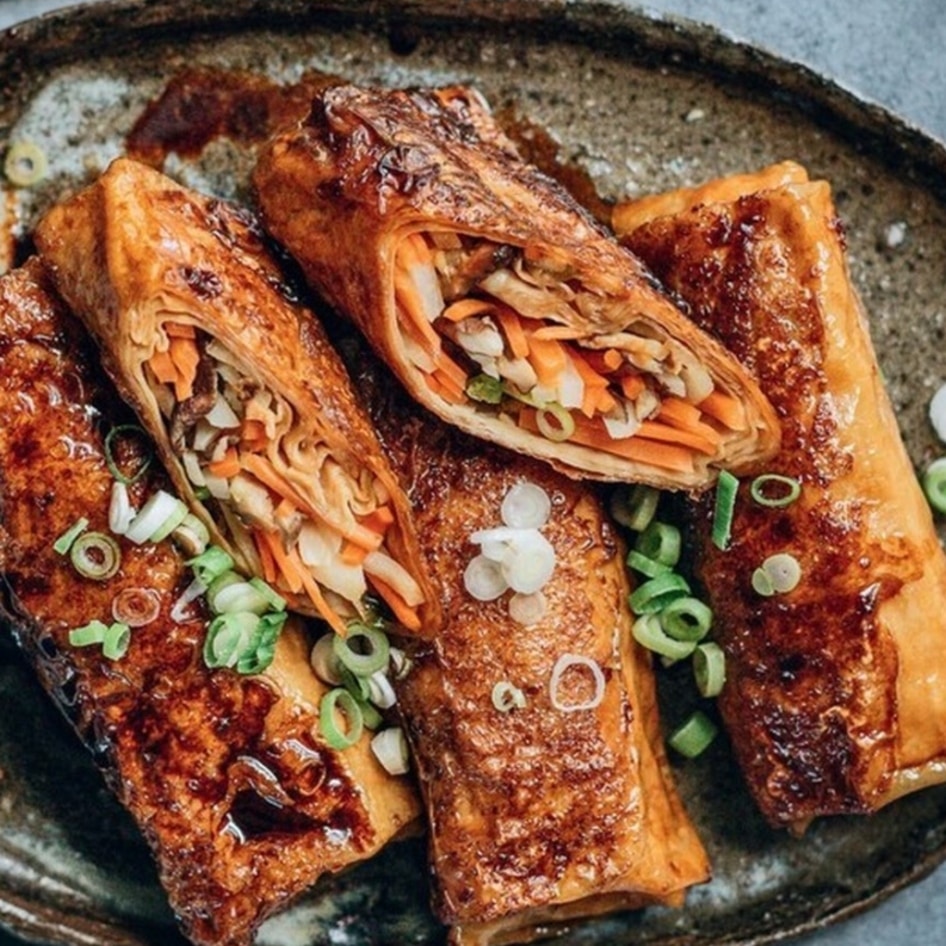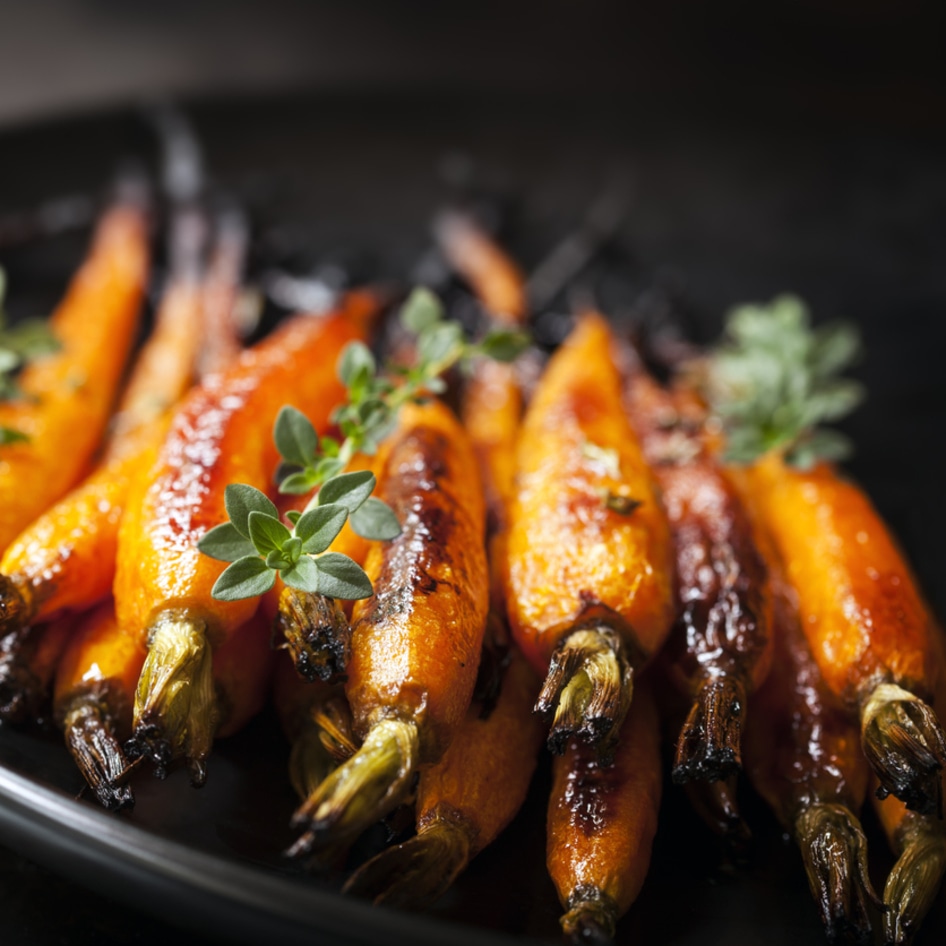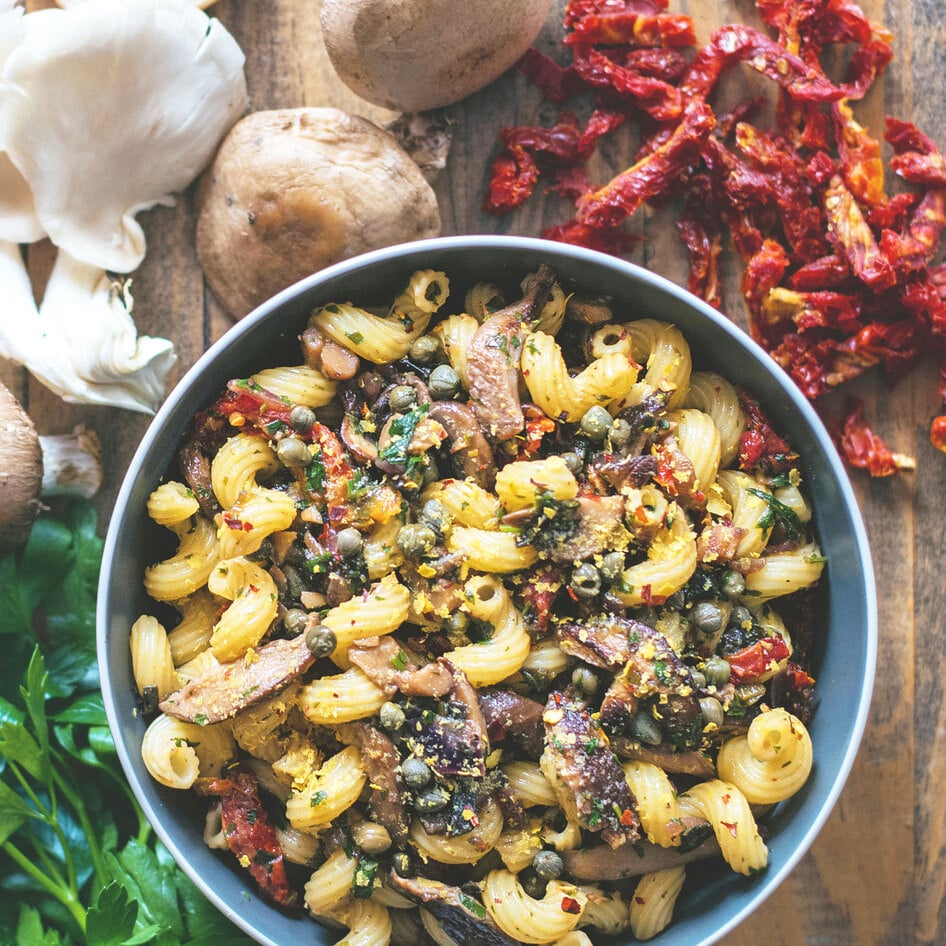When Joanne Lee Molinaro was growing up, the kitchen belonged to her grandmother. “I generally learned to stay out of her way,” she tells VegNews. That might come as a surprise, considering Molinaro is now the creator of the wildly popular plant-based blog The Korean Vegan and the author of the best-selling The Korean Vegan Cookbook: Reflections and Recipes from Omma’s Kitchen. Her new cookbook, The Korean Vegan: Homemade: Recipes and Stories from My Kitchen, is set for release this fall.
But Molinaro’s passion for cooking didn’t begin in childhood. “I didn’t do much cooking at all when I was little,” she admits. Her love for food, however, was present early on, and it went far beyond what was on the plate. “Eating was a time for the family to congregate, no matter what we were doing or what corner of the house we were in,” she recalls.
“The sanctity of mealtime was so ingrained, to this day, I find it odd not to eat meals together with my husband at the dinner table. It is a time for us to reconnect after long days of work and to refuel our bodies.”
That deep connection to family meals, often anchored by a grandparent’s or parent’s cooking, is something many of us share. In fact, a 2022 study by Bosch found that about 64 percent of Americans still prepare recipes their parents or grandparents made for them as kids.
This cultural and emotional link to family food traditions is also at the heart of Vince Vaughn’s latest Netflix film Nonnas. The movie follows Joe Scaravella (played by Vaughn) as he opens an Italian restaurant run entirely by grandmothers. “I enjoy food and spending time with friends and family,” Vaughn told Tudum. “That connection, sharing an experience with people you enjoy.”
There’s something about the food we grew up with that evokes comfort and nostalgia. A single bite can transport us back to a moment, a person, or a feeling. But while we may want to hold on to those memories, we don’t always want to cook exactly the same way. Today, more people than ever are leaning into plant-based eating, but that doesn’t mean we have to lose our beloved cultural and childhood recipes.
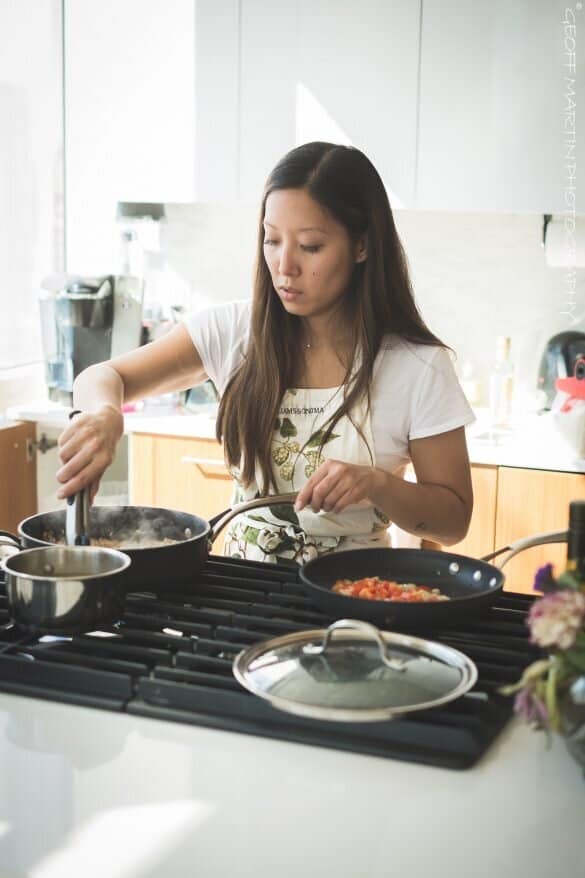 Geoff Martin Photography | The Korean Vegan
Geoff Martin Photography | The Korean Vegan
How to turn your beloved grandmother’s cooking plant-based: tips from The Korean Vegan
Molinaro knows better than most that we can reimagine those recipes with new ingredients that better align with our values or health goals. That’s why we asked the top chef for her tips on turning your beloved grandmother’s cooking plant-based. Here’s what she said.
1 Stay connected to the cultural origins of the dish
Molinaro starts by researching traditional versions of the dishes she plans to adapt. “I always confer with the non-vegan recipes of the dishes I intend to ‘veganize,’” she explains. When working with culturally meaningful foods, she emphasizes the value of learning from those with firsthand experience. For many, that could mean talking to a parent or grandparent about their original recipe. “I try to understand if there are particular stories behind that dish, to the person sharing it with me, or the country of origin,” she says. “This is for Korean cuisine or any other cuisine.”
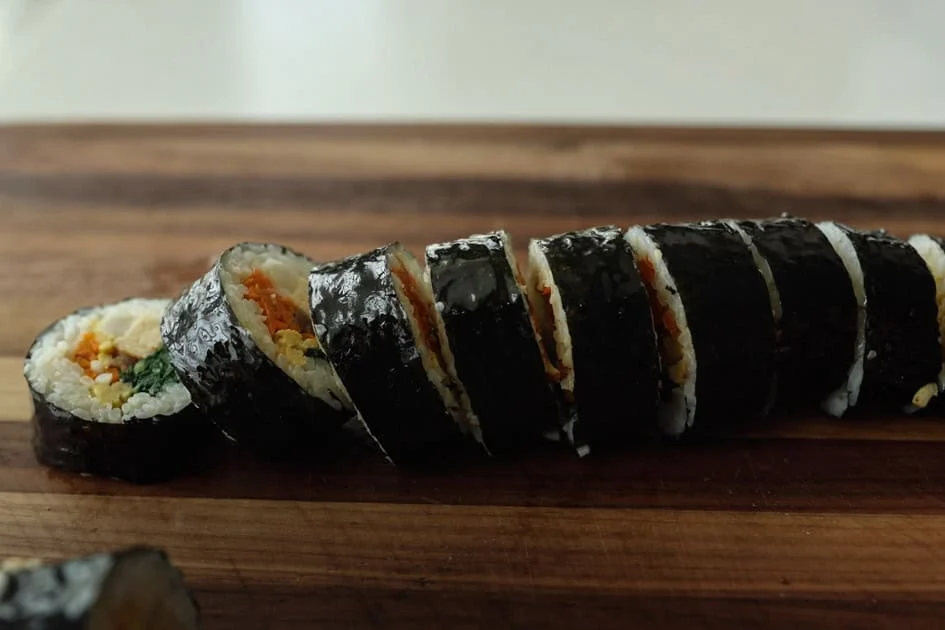 The Korean Vegan
The Korean Vegan
2 Don’t be overwhelmed by meat-heavy recipes
“Don’t be intimidated,” urges Molinaro. “Anytime I think, ‘oh… that simply can’t be veganized,’ I surprise myself! You never know until you try.” One of her favorite plant-based adaptations is a classic Korean dish: kimbap. “I make it all the time, even though it’s very labor-intensive,” she says. “I simply swap out the meat with vegan sausage or tofu.”
3 Be prepared to fall in love with recipes in a different way
Molinaro didn’t always have a warm relationship with kimbap. “I used to hate kimbap growing up,” she says. “It signaled everything that was ‘wrong’ with our family—the otherness of being Korean and my mother’s and grandmother’s failure to learn ‘American’ dishes. But now, I love it so much! And, the best part is, my family thinks I make the best kimbap ever! Vegan or not!”
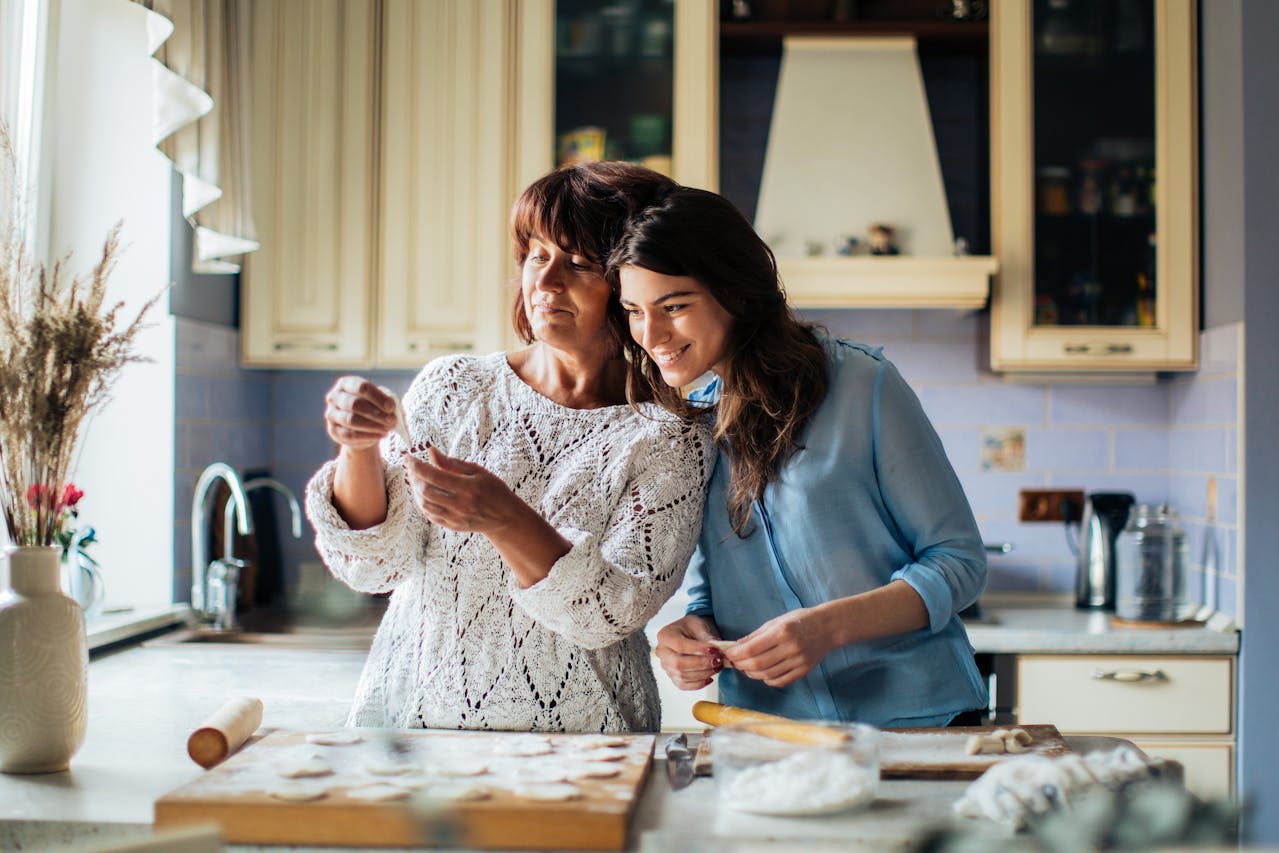 Pexels
Pexels
4 Don’t worry if a dish isn’t an exact replica
When it comes to veganizing nostalgic dishes, Molinaro urges home cooks to go easy on themselves. “Don’t let perfection be the enemy of good,” she says. “Not every veganized version will taste identical to the original traditional recipe, but that’s not necessarily a bad thing (even if some of your relatives think it is!).”
5 Keep your memories front and center
At the end of the day, Molinaro believes that the emotional connection is what really makes a dish special. “The important thing is whether the dish satisfies you and brings you closer to the memories and lovely stories that dish holds for you,” she says.
For more plant-based stories like this, read:
JUMP TO ... Latest News | Recipes | Guides | Health | Subscribe

